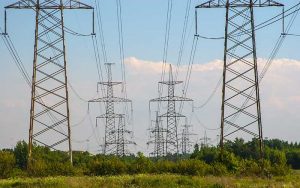
On March 10, 2021, the “Decree amending and adding various provisions of the Electricity Industry Law” (hereinafter, the “Decree”) published in the Official Gazette of the Federation on March 9, 2021, came into effect, which seeks to strengthen the Federal Electricity Commission (hereinafter “CFE”) against other competitors.
The important aspects of the Decree are focused on introducing the following figures, which will have direct consequences for both the energy sector and the Mexican economy: (i) Legacy Power Plant[1]; (ii) Electric coverage contract and the type of contract with commitment of physical delivery; and (iii) Legacy contract for basic supply.
In general terms, these figures give preference to the consumption of electricity generated (hydroelectric and fuel) by the CFE and, in second place, energy generated by private investment (wind, solar and combined cycle) will be dispatched. In addition, this Decree eliminates the obligation to hold energy auctions that allowed individuals to be more competitive in supplying energy to the CFE.
On the other hand, the approval of new electric power generation permits will be subject to the criteria of the Ministry of Energy (hereinafter “SENER”) and the National Electric System, and it is intended that there will be greater freedom for the granting of Clean Energy Certificates (“CELs”), a situation that could lead to a loss of their value in the market.
In order to materialize these changes, the Decree orders the SENER, the Energy Regulatory Commission (hereinafter “CRE”) and the National Energy Control Center to modify and align with the Decree, within 6 months after its entry into force, the necessary electric energy provisions contained in the agreements, resolutions, guidelines, policies, criteria, manuals and other instruments issued by them.
It also empowers the CRE to: (i) revoke the self-supply permits in force that have been granted or processed in a fraudulent manner and under the protection of the Public Electricity Service Law; and (ii) review the profitability and legality of the generation contracts of private producers.
It is important to note that the electric power industry plays an important role in the climate change we are experiencing. It seems that the consequences of the Decree will not allow a full proactive collaboration between the public and private sectors that could mitigate price volatility and reduce CO2 emissions to the environment. We will follow up on the reactions and legal consequences of this reform to inform you promptly. At Acedo Santamarina we remain at your service for any questions regarding the Decree.
[1] Which is defined as a power plant that is not included in a permit to generate electricity, which is owned by the State and whose construction and delivery is independent of its financing modality.
Daniela Cervantes Escamilla




